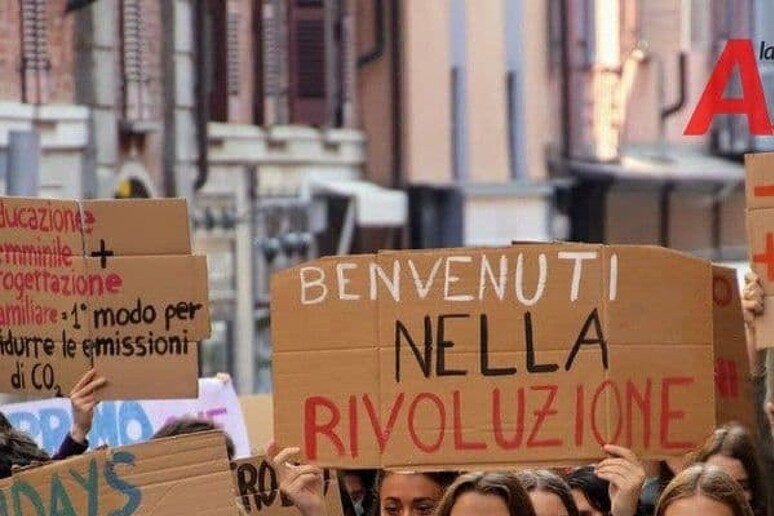Italian environmental groups have
pledged to ramp up the battle for action to tackle the climate
crisis after the "disappointing" outcome of the COP26 conference
that concluded in Glasgow at the weekend.
The pledges made at the UN conference came up far short of
achieving the target of limiting global heating to 1.5° C higher
than pre-industrial levels to avert a global environmental
catastrophe.
There was also disappointment over the issue of finance to help
developing nations cope with a crisis that has primarily been
created by high-emitting wealthier States.
But the nations did agree to revisit and strengthen their
nationally determined contributions (NDCs) to the effort next
year at COP27 in Egypt, instead of in five years as originally
laid out in the Paris Climate agreement, and to "phase down" the
use of coal and to eliminate "inefficient" fossil-fuel
subsidies.
"Citizens, scientists, and campaigners will judge COP26's wins
only on their delivery," said Dr Paola Fiore, the national
coordinator of the Italian section of the Climate Reality
Project, a global network of volunteer activists founded by
former United States Vice President and Nobel Peace Prize-winner
Al Gore.
"From now up to COP27, the entire world will watch national
governments and the international community even closer to
demand more urgent climate action," Dr. Fiore told ANSA.
"Compared to the previous imperfect negotiations at the COPs,
the Glasgow summit leaves us, no matter what, with a greater
sense of hope and stubborn determination.
"As humanity, we cannot afford despair or to stay silent.
"For the first time, a greater emphasis has been put on the
people; citizens, NGOs, activists, and communities will push
harder and harder to bring the principle of a just transition,
human rights, and planetary care at the heart of climate policy.
"We now need an enormous effort by everyone at all levels of
society in the coming months and years, to make trust the best
'currency' that nations, industries and governments can use to
assure climate and social justice to all the present and future
generations, poorer people and the most affected communities".
Legambiente President Stefano Ciafani said the Glasgow agreement
was "inadequate" especially for "the most vulnerable communities
of poor countries.
"The sore points include the crucial question of stopping the
burning of fossil fuels, which was not addressed adequately, and
the fact that no steps forward were made on the creation of the
Loss and Damage Facility to help poor countries face the climate
crisis," Ciafani said.
But he added that at least it "keeps the 1.5°C target alive".
Mariagrazia Midulla, the climate and energy head of WWF Italia,
said a lot more progress was needed too.
"Keeping global warming below 1.5° C is still possible only if
we intensity the global response to the climate crisis," said
Midulla.
"But the remaining window of time (to take action) is closing
fast.
"So it is time for the world leaders to keep all their promises
to ensure a safe, pleasant future for everyone.
"Glasgow was a starting point, not a final destination.
"We must all work for the climate crisis to be tackled in every
sphere with the necessary speed and incisiveness.
"No one is safe and we all have too much to lose, us and the
planet".
ALL RIGHTS RESERVED © Copyright ANSA











